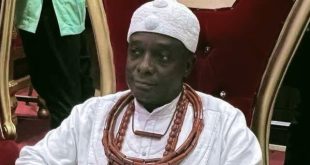Expresses fear over Delta state huge N200bn recurrent expenditure
Thirty-three state governments cannot finance their recurrent expenditure without allocation from the federation account, a report prepared by BudgiT has said.
The federation account, according to nigerianstat.gov.ng, is the central pocket through which the three tiers of governments maintain their respective workforce and fund their developmental projects.
BudgiT said in the report released in Abuja on Wednesday that going by its findings, many states would be in jeopardy if the federal allocation were to reduce owing to oil price fluctuations.
The report titled, ‘State of states 2019’, explained that only three state governments could finance their recurrent expenditure independently, without funds from the federal allocation.
READ ALSO: NUJ SET UP 17-MAN COMMITTEE FOR DELTA COUNCIL 2019 PRESS WEEK
It gave the three states as Lagos, Rivers and Akwa Ibom.
Speaking on the outcome of its findings, the Lead Researcher, BudgiT, Orji Uche, said only 19 states could meet their expenditure with internally generated revenue and federal allocation.
The report wondered why a state such as Delta was running huge recurrent expenditure reaching up to N200bn.
It also wondered why despite the size of its population, Bayelsa State still had recurrent bill as high as N137bn, compared with Ebonyi, which had a recurrent bill of N30bn; Sokoto, N38bn; Jigawa, N43bn; and Yobe, N35bn.
The report said it was a recurring development to see states in the South-South region running high recurrent bills, mainly driven by the high revenues earned as a result of the 13 per cent derivation principle.
In its analysis, the firm said it was also interesting to see states such as Cross River with a bogus budget of N1.04tn spend less than N93bn on an annual basis.
Uche said with the current uncertainties facing the oil market, state governments should not continue to rely heavily on federal allocation.
She said, “The implication of looking at this index is to enable us to understand without federal allocation, how many states can sustain themselves.
“And by sustaining themselves, we are looking only at recurrent expenditure. Are you going to meet your operating obligations? Are you able to pay salaries so that anything coming from broad federal allocation would go to investments in the key sectors of the economy?
“When we look at the index, we can see that those states that can meet their expenditure only with IGR are only three stages out of 36 states.”
The Senior Economist, World Bank, Yue Man Lee, speaking on the report, said one of the implications of having low revenue was that the amount Nigeria could spend on human development would be restrictd.
READ MORE: Jail NDDC Looters, Ex-militant urges Buhari
She said over the years, the fiscal capacity of states to generate the needed revenue to finance their operations had reduced.
She said, “The broader fiscal challenge that Nigeria faces is low revenue that constrains the budget envelop. This, when out in plain terms, is how much revenue that is available to spend on public service and investments in human capital.”
 South Daily
South Daily





